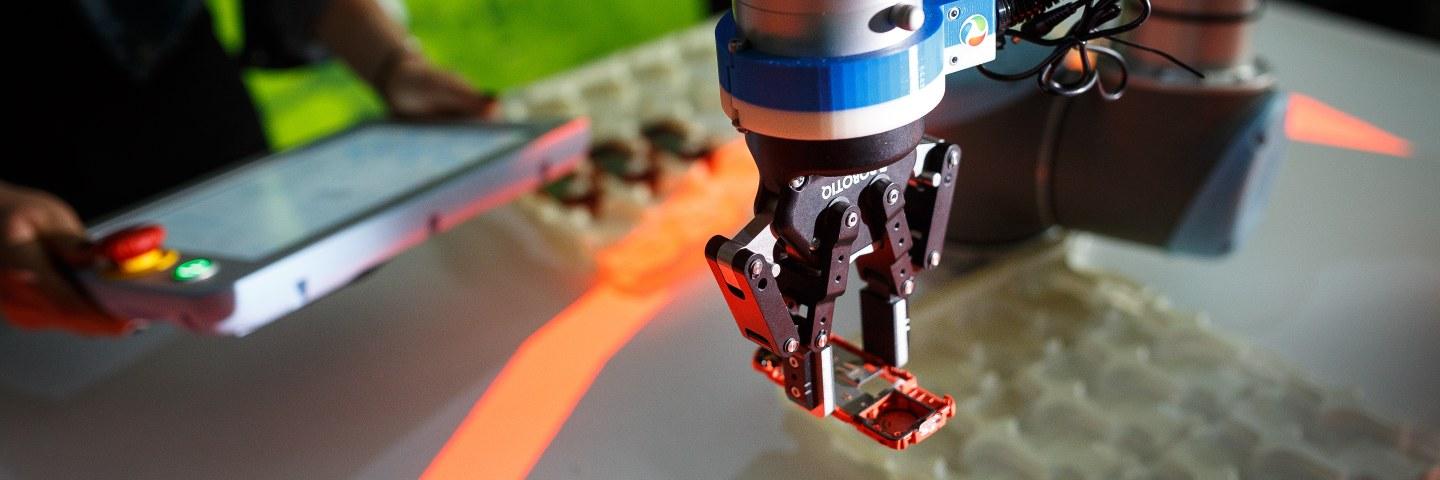
The main objective of H2020 funded project TRINITY is to create a network of multidisciplinary and synergistic local digital innovation hubs (DIHs) composed of research centers, companies, and university groups that cover a wide range of topics that can contribute to agile production: advanced robotics as the driving force and digital tools, data privacy and cyber security technologies to support the introduction of advanced robotic systems in the production processes.
The result will be a one-stop shop for methods and tools to achieve highly intelligent, agile and reconfigurable production, which will ensure Europe’s welfare in the future. The network will start its operation by developing demonstrators in the areas of robotics we identified as the most promising to advance agile production, e.g. collaborative robotics including sensory systems to ensure safety, effective user interfaces based on augmented reality and speech, reconfigurable robot workcells and peripheral equipment (fixtures, jigs, grippers, …), programming by demonstration, IoT, secure wireless networks, etc.
These demonstrators will serve as reference implementation for two rounds of open calls for application experiments, where companies with agile production needs and sound business plans will be supported by TRINITY DIHs to advance their manufacturing processes. Besides technology-centered services, primarily laboratories with advanced robot technologies and know-how to develop innovative application experiments, TRINITY network of DIHS will also offer training and consulting services, including support for business planning and access to financing. Services of participating DIHs and dissemination of information to wider public will be provided through a digital access point that will be developed in the project. Another important activity of the project will be the preparation of a business plan to sustain the network after the end of the project funding.



Funding source
The TRINITY project has received funding from the European Union’s Horizon 2020 research and innovation programme under grant agreement No 825196
People
Jyrki Latokartano
Project Manager, Jack of all robots, master of none. Jyrki Latokartano
Jyrki LatokartanoSalla Kotakorva
Specialist, tutkimuspalvelutRoel Pieters
Professor, Intelligent Machines and Robotics Roel Pieters
Roel PietersPartners
Tampere University, Finland
Centria University of Applied Sciences, Finland
UiT The Arctic University of Norway, Norway
Jozef Stefan Instietut, Slovenia
LMS University of Patras, Greece
Budapest University of Technology and Economics, Hungary
Fraunhofer IWU, Germany
Flanders MAKE, Belgium
Elektronikas un datorzinatnu instituts, Latvia
L-SEC, Belgium
Fastems, Finland
LP Montagetechnik, Germany
F6S, Ireland
UAB CIVITTA, Lithuania
European Association of the Machine Tool Industries, Belgium
DIGITAL NORWAY, Norway

